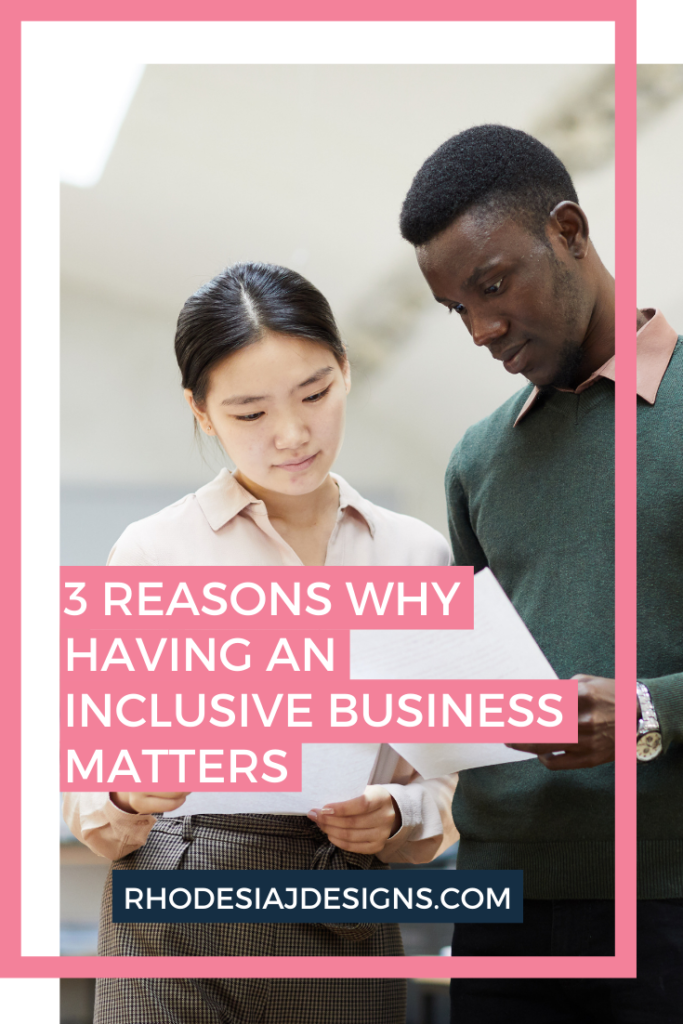I know that you are doing your best to be an ally to different marginalized communities. It’s a wonderful thing to be doing right now! Every bit of support and advocacy makes a difference. As a business owner, you have the opportunity to use your business platform as a space to make change. You can help to elevate people’s voices, while also showing that you stand with them. This is all great, but sometimes businesses make missteps when trying to be an ally. I’m going to review 5 common warning signs that could tell you that your allyship is performative.
1. Everyone you follow on social media looks like you.
This is probably the most obvious sign of performative allyship. For instance, if I’m scrolling through instagram and see someone posting about BLM or trans rights, I get excited. Seeing another business owner with similar values to mine is an instant follow. But then I might goto their instagram and notice that everyone they follow looks just like them. That’s a huge red flag for me. It looks like they’re trying to appear as an ally. Not because they actually care, but to save face. This is comes across as performative allyship.
Want some tips on how to make your social media authentically inclusive? Check out my Inclusive Social Media Guide!
2. The photos on your website are of people who fit society’s idea of “beauty”. In other-words, thin, conventionally attractive, heteronormative, able bodied, and light skinned.
This gives the message that you only provide services or sell your products to a certain group of people that look a certain way. If someone doesn’t see themselves represented on your website, chances are they won’t feel welcomed to work with you or buy from you. If a business isn’t representing a variety of people with different abilities, cultural backgrounds, physical appearances, etc- then their allyship will definitely come across as performative. Here’s another blog where I have suggestions on making your photos more diverse.
3. If you have employees, there is no cultural, racial, age, religious, or any other types of diversity among them.
This is a big one. Its hard to say you’re an ally when you aren’t making an effort to be inclusive in your hiring or outsourcing. Employing people outside of your own sphere opens you up to different perspectives and experiences that can make your product or services even better.
4. Everyone you feature in your blog or on your podcast has similar lived experiences.
If you are aiming to have a diverse audience that reads your blogs or listens to your podcasts, chances are that they would like to hear perspectives that they can relate to. When they can’t relate it’s hard to engage an audience, no matter what that audience might be, when you are telling the same stories from the same points of view.
5. If you are a product-based business, your products aren’t inclusive of everyone’s needs.
It’s contradictory to say that a particular business is welcoming of everyone, when they don’t offer products that are actually accessible to everyone. In other words, it’s hard to talk the talk if you don’t walk the walk. A couple of examples are a clothing company with a limited range of sizes, or a makeup company that only has light shades of foundation.
In conclusion, it’s your responsibility as a business owner to use your platform to push for inclusivity in an honest and authentic way. You don’t want your allyship to come across as performative so make sure you are actually doing the work! If you want support and accountability to make sure you are helping, and not hurting BIPOC, LGBTQ, older adults, and other marginalized folks check out my facebook group, Built to Be Inclusive. A group for feminist business owners to hold each other accountable to make the world a more inclusive place.






